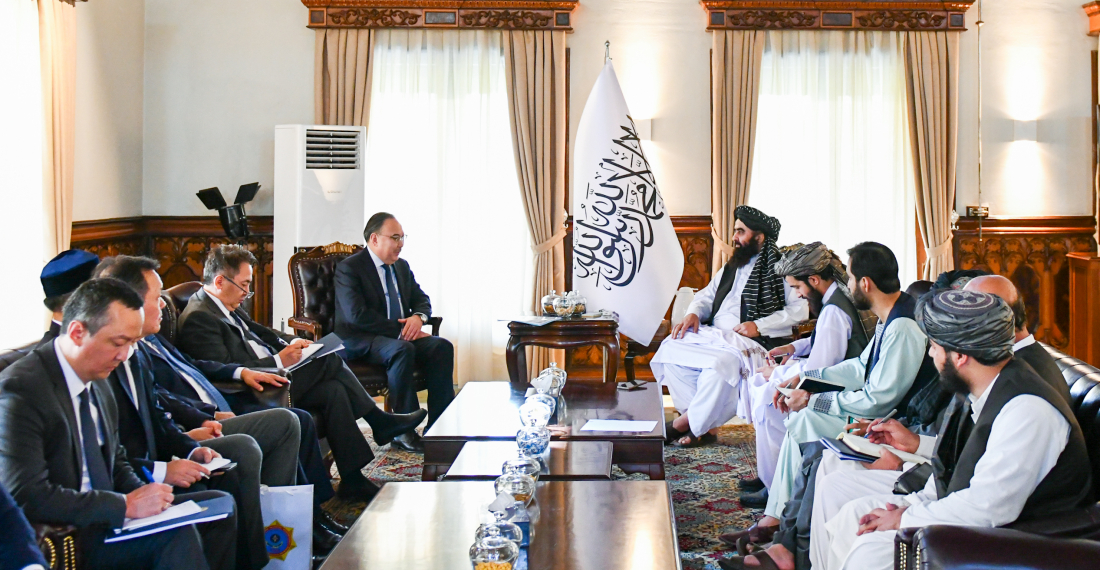The Special Representative of the President of Kazakhstan for International Cooperation Erzhan Kazykhan arrived in Kabul on Monday (18 October) for a working visit.
According to a news item posted on the web site of the Kazakh presidency, during the Kazakh envoy held meetings with the representatives of the interim government of Afghanistan Abdul Kabir and Amir Khan Muttaqi. At the talks, the two sides discussed Kazakhstan’s humanitarian aid provision to the Afghan people, as well as restoration of bilateral trade and economic ties.
The head of the Kazakh delegation noted that by President Kassym-Jomart Tokayev’s order, five thousand tons of flour were delivered to Afghanistan as humanitarian aid. He also conveyed Kazakhstan’s proposal to provide its domestically-developed QazVac vaccine to Afghanistan.
Erzhan Kazykhan informed about the steps being taken by Kazakhstan together with UN agencies to further expand humanitarian supplies to the people of Afghanistan.
During the talks, mutual interest was expressed in restoring traditional trade and economic ties and continuing educational programs in Kazakhstan for Afghan students. The representatives of Afghanistan’s interim government also took with the interest the proposal of delivery of the Kazakh vaccine.
In addition, while in Kabul Erzhan Kazykhan also met with UN Secretary-General’s Special Representative for Afghanistan and Head of UNAMA Deborah Lyons, during which they discussed the issues of expanding cooperation between Kazakhstan and the UN in overcoming the humanitarian and food crisis in Afghanistan.
source: commonspace.eu with the press service of the president of Kazakhstan
photo: A Kazakh Government delegation visited Kabul on 18 October 2021 for talks with the Taliban government (picture courtesy of the press service of the president of Kazakhstan).







